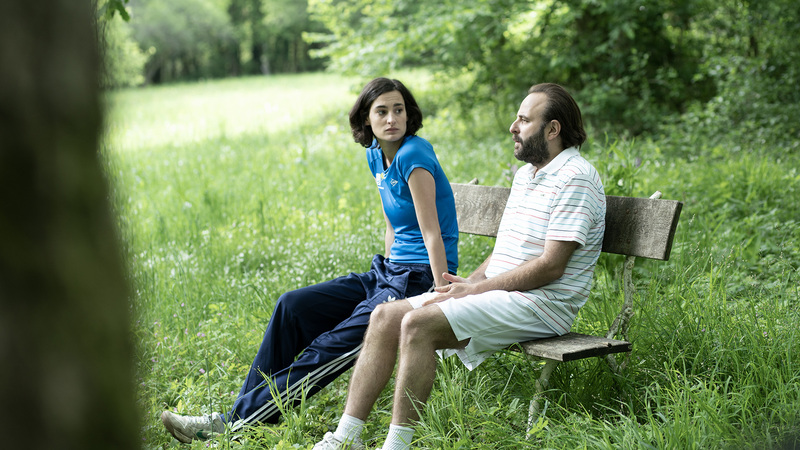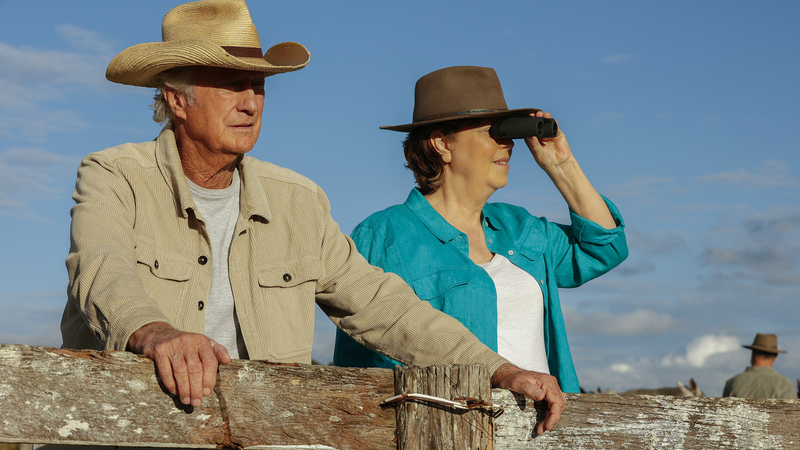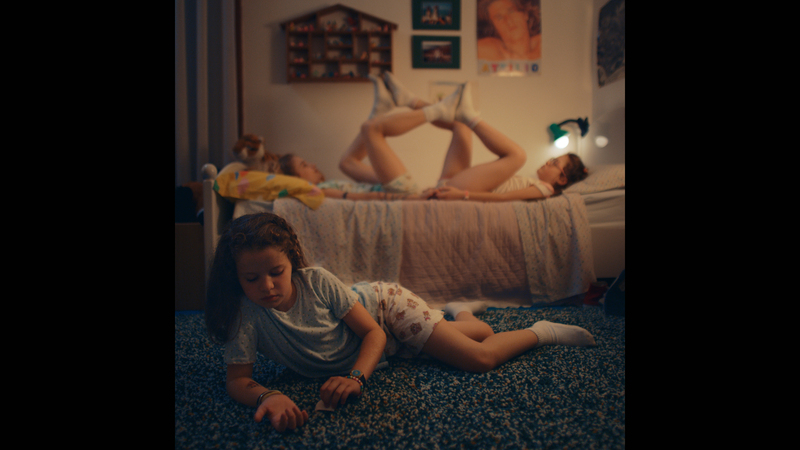
Turning Isolation Into a Self-Portrait
MOVIE REVIEW
Suspended Time (Hors du temps)
–
Genre: Comedy, Drama
Year Released: 2024, 2025
Runtime: 1h 45m
Director(s): Olivier Assayas
Writer(s): Olivier Assayas
Cast: Vincent Macaigne, Micha Lescot, Nine d’Urso, Nora Hamzawi, Maud Wyler, Dominique Reymond, Magdalena Lafont
Where to Watch: opens in select theaters August 15, 2025
RAVING REVIEW: Olivier Assayas’ SUSPENDED TIME is as much a diary entry as it is a feature film, built from the in-between moments of pandemic life and anchored by a deeply personal connection to its setting. In the spring of 2020, as lockdown reshaped daily life worldwide, Paul Berger (Vincent Macaigne), a filmmaker not far removed from Assayas himself, retreats to his childhood home in the Chevreuse Valley. He’s joined by his partner, Carole (Nora Hamzawi), his brother Etienne (Micha Lescot), and Etienne’s new girlfriend Morgan (Nine d’Urso). The arrangement quickly turns into a personal, sometimes claustrophobic microcosm of the broader uncertainties outside their walls.
What unfolds is not a high-drama pandemic thriller, but rather a string of moments—petty arguments and shopping habits, silent tensions, moments of reconnection with old books and landscapes. The film embraces this minimalism deliberately. Assayas wrote it during the tail end of lockdown, unsure if it even constituted a film, and that ambivalence is woven into the fabric of the piece. The result is a work that feels unhurried and observational, its pacing reflecting the strange elasticity of time during that period.
The autobiographical streak is impossible to ignore. The home is Assayas’ real family house, filled with objects that carry his personal history—paintings by his grandfather, furniture tied to memories of his parents, relics from his father’s travels. While these details may not register with the audience in the same way they do for the director, their presence gives the space a lived-in authenticity.
This setting allows SUSPENDED TIME to explore the interplay between past and present. Etienne has modernized his old bedroom, distancing himself from what came before. Paul, in contrast, immerses himself in his mother’s room, leaning into the weight of memory. This difference mirrors the brothers’ dynamic—Macaigne’s Paul is openly neurotic, prone to restlessness and self-questioning, while Lescot’s Etienne is more controlled but equally shaped by shared history. The film’s most charged moments arise not from shouting matches, but from subtle shifts in this relationship, especially when the household’s balance is disrupted.
Visually, the collaboration between Assayas and cinematographer Eric Gautier leans toward a naturalistic style. Outdoor scenes are bathed in sun and greenery, while interiors are lit in ways that preserve the house’s textures—polished wood, faded wallpaper, the stillness of rooms that have not changed in decades. The style matches the film’s tone: observational rather than manipulative, as though we’ve been invited to witness rather than be guided through an emotional arc quietly.
Yet for all its strengths, SUSPENDED TIME can feel, at times, like it’s speaking more to the filmmaker than to the audience. The highly specific autobiographical elements—both in setting and tone—create a sense of intimacy, yet also a degree of distance from those watching. Scenes can drift into the territory of personal reflection without always finding the thematic hook that makes them universally resonant.
Still, there’s a certain charm in how the film captures the contradictions of that unique moment in history. Lockdown is portrayed not solely as a prison, but also as an unexpected pause—one that forces the characters to reconsider their relationships, their past, and their way of occupying space. The voiceover, likened by Assayas to a book being written in real time, underscores this reflective quality, shifting the piece toward something more essayistic than purely narrative.
Ultimately, SUSPENDED TIME earns its rating as a film of subtle observations rather than sweeping statements. It’s a personal sketch turned into cinema—slight in plot, rich in texture. For some, it will feel like a quietly rewarding visit into a filmmaker’s inner life. For others, it may feel too much like leafing through someone else’s private journal. Either way, it is an honest, unvarnished document of a moment when time felt both endless and fleeting. Ironically and unexpectedly, the global pandemic we all faced helped create worlds of storytelling that we would never have encountered otherwise. These films all had to learn on their own as they were created; the blueprint wasn’t there, and that makes them all something special in their own unique ways.
Please visit https://linktr.ee/overlyhonestr for more reviews.
You can follow me on Letterboxd, Instagram, Twitter, and YouTube. My social media accounts can also be found on most platforms by searching for 'Overly Honest Reviews'.
I’m always happy to hear from my readers; please don't hesitate to say hello or send me any questions about movies.
[photo courtesy of MUSIC BOX FILMS, PLAYTIME, CURIOSA FILMS, VORTEX SUTRA, CANAL+, CINÉ+, COFINOVA 20, CINÉMAGE 18, CINÉAXE 5]
DISCLAIMER:
At Overly Honest Movie Reviews, we value honesty and transparency. Occasionally, we receive complimentary items for review, including DVDs, Blu-rays, CDs, Vinyl Records, Books, and more. We assure you that these arrangements do not influence our reviews, as we are committed to providing unbiased and sincere evaluations. We aim to help you make informed entertainment choices regardless of our relationship with distributors or producers.
Amazon Affiliate Links:
Additionally, this site contains Amazon affiliate links. If you purchase through these links, we may receive a commission. This affiliate arrangement does not affect our commitment to honest reviews and helps support our site. We appreciate your trust and support in navigating these links.



Average Rating